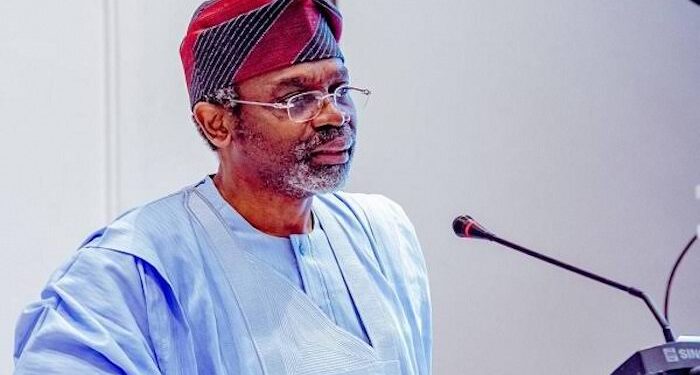Speaker of the House of Representatives Femi Gbajabiamila has criticized President Muhammadu Buhari’s decision about the outdated naira notes.
In a Thursday morning television address, President Buhari announced that he had instructed the Central Bank of Nigeria (CBN) to extend the validity of old N200 notes until April 10.
In addition, the president stated that all old N1,000 and N500 notes will be redeemable at the Central Bank of Nigeria (CBN) and authorized locations for sixty days.
However, in a statement released on Thursday, Gbajabiamila stated that Buhari’s direction disagrees with the judgement of the supreme court.
The Supreme Court ruled on February 8 that the old notes will remain legal cash pending the outcome of a petition filed by a number of state governors.
The apex court stated on Wednesday that its order regarding the outdated banknotes stands and deferred the ruling on the subject until February 22.
Gbajabiamila stated that the federal government’s mandate to continue using the old currency notwithstanding the supreme court’s decision “suggests a flagrant contempt for the rule of law.”
“This morning, President Muhammadu Buhari, GCFR, announced that he has authorized the Central Bank of Nigeria (CBN) to reintroduce the old N200 notes into circulation until adequate quantities of the new currency can be produced. This is a step in the right direction, and I hope it helps reduce the suffering of Nigerians,” added Gbajabiamila.
“However, the ruling falls short of the Supreme Court’s directive that the old currencies remain legal tender awaiting the outcome of a lawsuit filed by state governments challenging the legitimacy of the policy and its implementation.
“It is not in our nation’s best interest for the federal government to demonstrate a flagrant disdain for the rule of law. We should rigorously abide to the court’s order in this regard awaiting the resolution of the substantive lawsuit.
“For the sake of our nation, we must resist activities that increase tensions and imperil our democracy during this important period of national awakening and regeneration.
“Let the well-being of our fellow citizens and the survival of our nation be forefront in our minds and influence every decision we make at this moment of history.
“Citizens and visitors are facing severe and unwarranted hardships around the nation. They spend hours and days waiting in line at banks and teller machines to collect their own money in order to pay for basic requirements.
“This predicament is a result of the Central Bank of Nigeria’s faulty implementation of the naira redesign policy” (CBN). It is also the result of judgments made by the Governor of the Central Bank, Mr. Godwin Emefiele, to deny advice, follow precedent, and adhere to the rulings of higher courts.
Gbajabiamila stated that section 20(3) of the CBN Act of 2007 grants the central bank the legal ability to enact policies for the recall of Nigerian currency.
Gbajamiala stated that the law allows for the recall of outdated currency under three circumstances.
“The first is that authorization must be acquired from the President, and the second is that reasonable notice must be provided. The third is that upon receipt, the Central Bank of Nigeria will pay the face value of the recalled currency,” he stated.
“While reasonable people may disagree on whether sufficient notice was given for the implementation of this policy, it is evident that the Central Bank of Nigeria (CBN) has failed egregiously in its statutory obligation to pay the face value of the recalled currency in a form useful to the citizens, whose current suffering could have been avoided.
“The current cash shortage is the result of the Central Bank of Nigeria (CBN) failing to adequately replace the old money it removed from circulation throughout the country. This produced an artificial shortage that added enormous strain to the already epileptic electronic financial systems, resulting in a near-total collapse of the country’s trade.
“Businesses are unable to operate because neither they nor their clients have access to cash, and it appears that all electronic banking infrastructures have crashed. It is unclear what interest is served by continuing on this misguided path toward a developing economic crisis that the nation cannot afford. The continued destruction of livelihoods will undoubtedly have long-lasting repercussions.
“It is disappointing that the Central Bank of Nigeria (CBN) has stubbornly refused to accept error and change course despite overwhelming evidence that the implementation of this strategy has been a catastrophic failure.”
Gbajabiamila stated that neither the national council of state nor the supreme court could compel the CBN governor to reconsider the decisions that “have brought us to this very avoidable position.”


